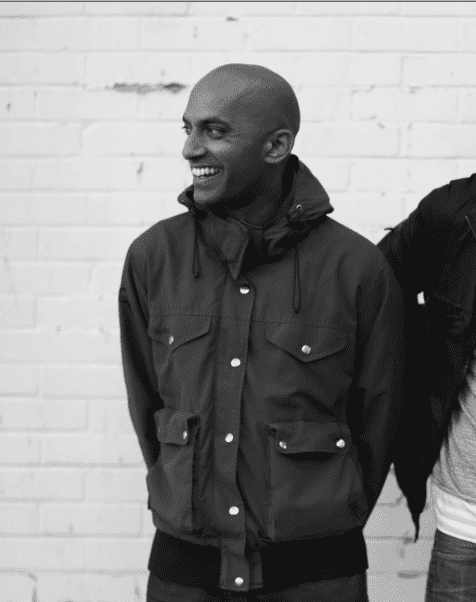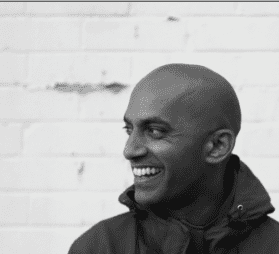Having learned his trade with a ten-year stint programming nights at London’s legendary The End club before setting up The Hydra and Clock Strikes 13, self-confessed dilettante Ajay Jayaram gives us an insight into his career.

Name?
Ajay Jayaram
Place of work?
Job?
Dilettante.
How long have you had the job?
Nine months exactly to the very second, as I write this.
What does a typical day involve?
Lots and lots of meetings, relating to the now, the future, and the past strangely enough. Running a promotions company tends to involve various strands, including everything from idea generation for the music side to the intricacies of the logistics, via overseeing the marketing and PR activities. Depending on how involved you want to be (and I am usually very involved), in and of itself, it’s a 360 occupation.
Curating events, watching them grow from an idea to the night or series itself is crazy. Anyone working in this industry is very privileged.
Even if you sell an event out, you still have to execute it, and I don’t just mean in terms of it running smoothly logistically. I want all the parties that we put on to be a real experience – I want people to say it was a killer event, I want the artists to enjoy it and I want them to play as well as they can. I’m not sure there’s ever a point where you can sit back and put your feet up until an event’s over. It’s difficult to feel you’re truly out of the woods until after the event.
Highs of the job?
Music. It has always been about – and continues to be about – the music for me, and I genuinely mean that. Curating events, watching them grow from an idea to the night or series itself is crazy. Anyone working in this industry is very privileged.
Lows of the job?
Being a promoter is a more legitimately accepted form of gambling, basically. You can imagine the lows.
Events live and die by what you’re able to put together creatively, and if we put on duff line-ups, no one’s going to be interested. That side of it is where the risk of the whole enterprise comes. When you’re promoting independently, there are huge financial risks. Sometimes it’s kind of difficult not to make decisions with your heart. We all have records and artists that we’re really into and that’s what drives you when you’re putting an event together, but sometimes I have to check myself because some of the stuff we like is kind of nerdy and ultra-niche in some cases. You have to be conscious of the fact that if you go too far down the rabbit hole it might be a mistake.
When you’re promoting independently, there are huge financial risks.
Having done it independently for a while now, we’ve made a lot of mistakes but we’ve also been quite successful with some things. You have to take a few risks. We’re not promoting big commercial club events – a lot of it’s quite niche. It might sound weird because I’ve been doing it for a long time, but a lot of it to this day is still trial and error. I try as much as possible to apply my experience, but I’m still making mistakes, I’m still discovering new things and I’m still learning.
Long hours don’t help either, but everyone is busy in their own way, right?
Who are the people who’ve had the biggest influence on your career and why?
My brother got me into music, so it’s all his fault. If he’d have been more in to films, I may have been on Eastenders by now…
How did you get the job?
I cut my teeth programming The End nightclub for ten years. I studied French and management at uni then I spent a year as a recruitment consultant. For the first six months it was enjoyable and the money was good, then I realised that not only did I not truly enjoy it, but I felt like I wanted to pursue a career in music.
If you are able to deliver, it will work out - people don't regret creating a job for someone who made themselves indispensable…
It took me the best part of a year to find a job in the industry, then eventually I was lucky enough to get a role as an office junior at The End. Since it closed I’ve been working as an independent promoter. Clock Strikes 13 is the latest project that I’ve created, and was put together to reflect the diverse talent coming through from more low-key electronic scenes at the moment.
How can we get your job?
There are more vocational courses in music available now than when I studied, and a lot of technical degrees and courses which could naturally lead into jobs in the industry. Any degree proves that you’re capable of having your act together enough to stay on top of things, but in terms of specific disciplines I don’t think there’s necessarily anything that would lend itself to what we do as promoters.
I know it’s an arts-type-job cliche, but you really do have to be prepared to graft very early on, for little return. In order to be involved you have to get involved. Most independent companies in the industry cannot afford to employ junior staff at any significant rate of pay, which is tough in London, so you need to find a way. But, being resourceful, enterprising and above all else prepared to make sacrifices will help. If you are able to deliver, it will work out – people don’t regret creating a job for someone who made themselves indispensable…
Clock Strikes 13 kicks off in London this weekend with Lex Records at The Laundry on Friday and Boxed x Local Action at Corsica Studios on Saturday.

10.50 AM
I worked with Ajay many moons ago at the End, lovely bloke who has certainly paid his dues! Wish him all the best